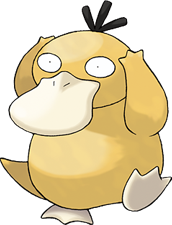I don't read much on autism. No books by autistics or articles by doctors. Except to get some basic facts, the criteria they use, statistics etc. But I do read everything that comes out as scientific studies on autism I can find.
I think the understanding of autism until recently was primarily based on observations on symptoms. But as time progressed many realized the symptoms were a lot more varied and confusing then first realized, hence the term spectrum. Diagnosis therefore can be very difficult.
They are on the outside trying to figure out what is going on, on the inside. It can be very subjective. Some professionals are so inept that I think you have as much chance of getting an accurate diagnosis by going to someone who reads tea leaves. So I tend to give more weight to what is being learned about it from the inside out.
As best I understand it, about 100 gene variations/mutations have been identified as prevelent in autism. They group quite distinctly in two specific areas of a key section of the genome. One is I beleive mostly related to developmental issues (ie. Speech, Coord, etc) and the other to brain development/building instructions that affects our thinking processes. I believe many people (including many if not most NTs) have a couple of the variations, some have a bunch and some many. It depends upon how many of them and in which areas they are that determines the sort of symptoms and conditions a person will experience. With 100 variables the ammount of possible combinations is astronomical. If you have only a few it will probably not be recognized as autism. The more you have the more likely symptoms will show. For reasons so technical I can't follow it, they also found something within the structure or chemical processes of DNA or genes of females is more resiliant and tripping points are higher. This aspect really was confusing but meant something like it took more variations for females to become symptomatic.
Not written in stone by far, but what the most recent work on our DNA/Genes is suggesting to to researchers.
I think the understanding of autism until recently was primarily based on observations on symptoms. But as time progressed many realized the symptoms were a lot more varied and confusing then first realized, hence the term spectrum. Diagnosis therefore can be very difficult.
They are on the outside trying to figure out what is going on, on the inside. It can be very subjective. Some professionals are so inept that I think you have as much chance of getting an accurate diagnosis by going to someone who reads tea leaves. So I tend to give more weight to what is being learned about it from the inside out.
As best I understand it, about 100 gene variations/mutations have been identified as prevelent in autism. They group quite distinctly in two specific areas of a key section of the genome. One is I beleive mostly related to developmental issues (ie. Speech, Coord, etc) and the other to brain development/building instructions that affects our thinking processes. I believe many people (including many if not most NTs) have a couple of the variations, some have a bunch and some many. It depends upon how many of them and in which areas they are that determines the sort of symptoms and conditions a person will experience. With 100 variables the ammount of possible combinations is astronomical. If you have only a few it will probably not be recognized as autism. The more you have the more likely symptoms will show. For reasons so technical I can't follow it, they also found something within the structure or chemical processes of DNA or genes of females is more resiliant and tripping points are higher. This aspect really was confusing but meant something like it took more variations for females to become symptomatic.
Not written in stone by far, but what the most recent work on our DNA/Genes is suggesting to to researchers.
